Sociology/Anthropology Major – Anthropology
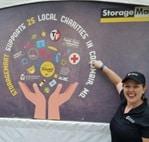
I am the Executive Director of the American Red Cross of Central and Northern Missouri. My territory covers 27 mid-Missouri counties including Adair County.
How did you get to this place in your life/ career?
Growing up in a rural farm town, I experienced hardship and loss at a young age. This shaped many of the decisions in my life, including volunteering for a nonprofit during my time at Truman. After graduation, I traveled to South Africa with the Sociology Department. While there, I discovered many things about myself including my passion for demographic work, cultural norms, fundraising, and service. It was during this trip that the direction of my future career took shape. I sought out a Master’s Degree in public affairs and nonprofit management. Learned all I could about the inner works of nonprofits. Over time, I found myself back where I had started—with the American Red Cross helping to diversify services in mid-Missouri—helping those that need it most.
Have you been to graduate school? If so, where did you go? Did you go right after graduating from Truman?
Yes. I attended the University of Missouri’s Truman School of Public Affairs. I did not go right after my undergraduate degree. I waited and went back to night-school while working full-time and paying my way through school.
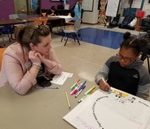
Do you have any advice for Truman students who are interested in going to graduate school?
Grad school is a lot of money. If you are unsure of the career field you want to go into, try something hands-on first. Even if it’s volunteer work in that same career field! You’ll find out quickly if it’s for you or not…and save a lot of time and debt.
How has the education you’ve received from Truman helped you?
Studying anthropology has helped tremendously. Working in nonprofits, it is easy to form judgments around those that are seeking assistance. By stepping outside your own bias and into a new frame of mind, you better position yourself to help, to understand, and to lead with compassion. I use this daily.
Sociology has helped, too. I didn’t understand how closely the two fields intersected in school. With a familiarity of social norms, demographic analytics, and social problem-solving skills in my back pocket, I am better suited to put emotion aside, lead my community with a level head, and base decisions on statistics and multi-year trends, ultimately serving more people and having a greater impact on my community.
What co-curricular or extracurricular activities were you involved in?
Some intramural sports, was an avid attendee of the REC kickboxing classes, teacher’s assistant for MicroBiology, and summer volunteer for the Kirksville American Red Cross.
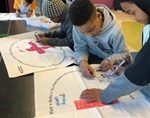
I studied nursing at Truman as well although I did not graduate with a nursing degree; it has helped me understand the need for blood products and vaccinations, not just state-side by also internationally. I loved healthcare courses—hated the large textbook readings but can say I am the only ‘humanitarian’ in my office that knows something about blood (non-medical professional).
What is your favorite memory of your time at Truman?
One of my favorite aspects of Truman was the campus. I enjoyed the walk to Barnett Hall daily. Jogging out to Rainbow Basin, the many, MANY shenanigans with my MO Hall friends…we’re still close and visit with each other.
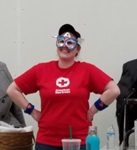
Truman is tough. They expect a lot from you. It conditioned me well for graduate school. In fact, I remember saying, “Grad school is a breeze compared to Truman!” You’ll come away with more than you expect and be able to take on more than most in the workplace. I also credit my leadership abilities to Truman. I learned as many ‘soft skills’ as I did ‘hard skills.’ I was just inducted into a women’s leadership society, Zonta International, as a board member—I credit this accomplishment to Truman.
Do you have any advice for someone wanting to go into the same line of work as you?
Get dirty. Not physically—but roll up your sleeves and do the work. You won’t truly understand the need, your impact, or the work until you experience it yourself. I don’t know how many nonprofits I volunteered at over the years—but it set me up for success.
What do you miss most about campus life/ living in Kirksville?
Woody’s Burnt End Sandwiches!
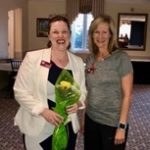
Authenticity is powerful. Being able to show your intellect and assertive side will crush it in the board room. Knowing when to allow your goofy side to peek through builds trust. Mixing the two together is truly memorable. It’s true what they said, “People will forget what you tell them, but they will never forget the way you made them feel.”
Are you a sociology/anthropology Truman graduate?
If you’re interested in sharing information about what you’re doing now, go to our SOAN Alumni Spotlight Submission Form.